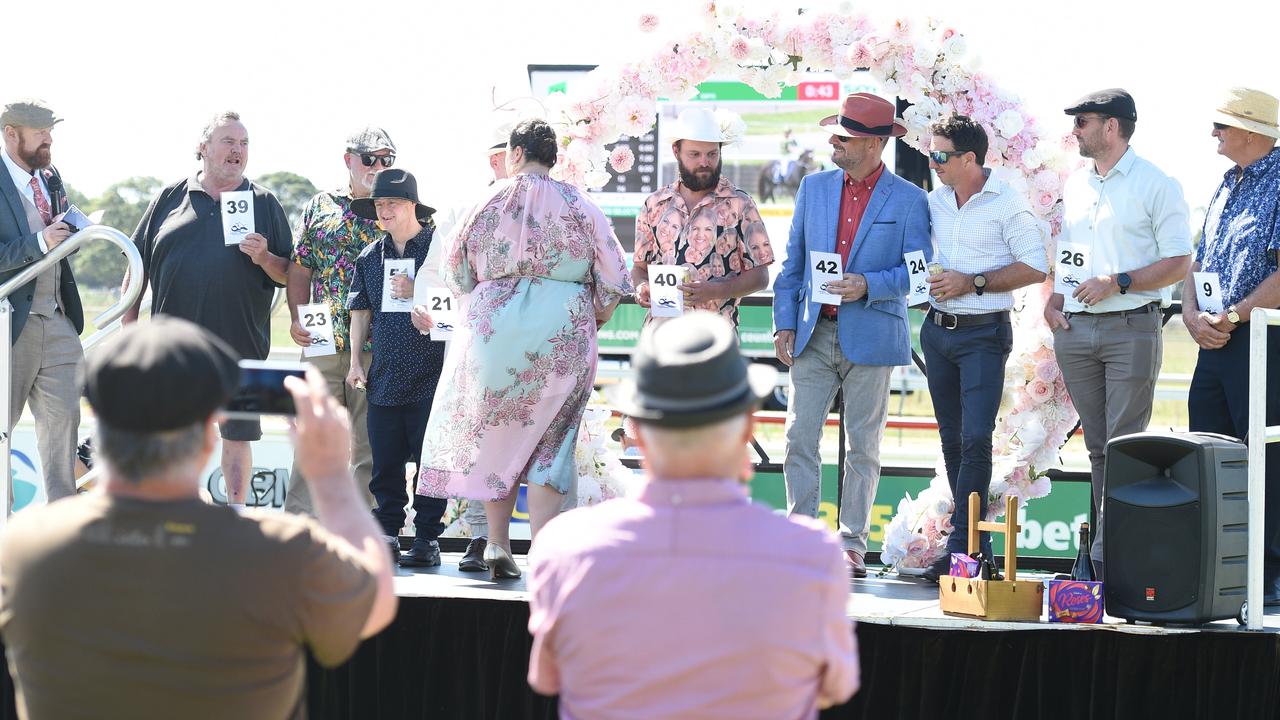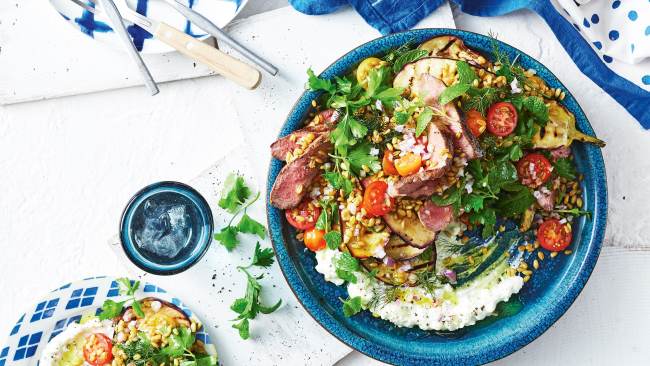The women making their mark in a man’s world
Challenging inequality, bias and stereotypes are all in a days work for these wonder women.
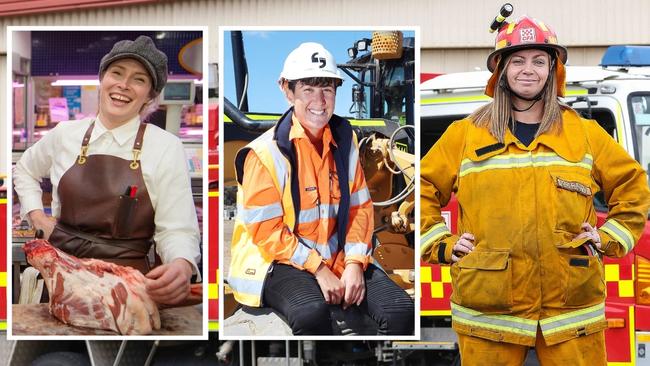
Lifestyle
Don't miss out on the headlines from Lifestyle. Followed categories will be added to My News.
Each year, International Women’s Day on March 8 celebrates the social, cultural, economic and political achievements of women from all walks of life. This year the theme of the global event is Choose to Challenge and women are being urged to challenge inequality, bias and stereotypes.
But some women are one step ahead.
They are already challenging stereotypes and proving the right skills, mindset and determined attitude can get you to the CEO’s office, to be a captain with the CFA, or to take charge of a major construction project. Here we introduce some women who are at home in what has traditionally been a man’s world.
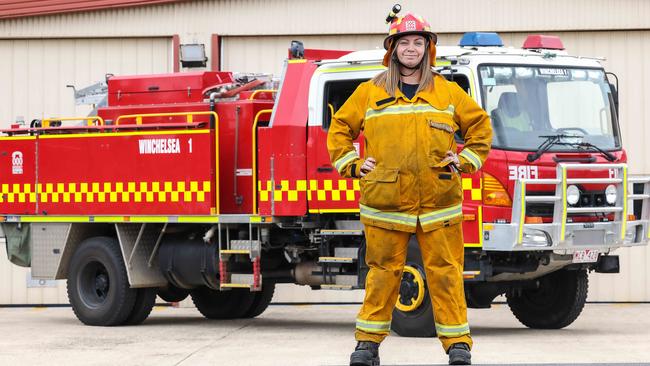
THE FIRE CAPTAIN
Kaylene Stocks, 45, is Captain at Winchelsea fire station – the first woman in the role.
Stocks grew up in a CFA family and, several years ago, the mother-of-four decided to become an active firefighter herself.
Her father joined Winchelsea CFA when Stocks was 2 years old and she remembers being dropped at her grandparent’s home when her parents had to head to the station. While her father went out on the truck, her Mum volunteered in the communications room.
“I remember Ash Wednesday. Nan told us kids to stay away from the windows because she didn’t want us to get scared — you could see the huge glow,” Stocks recalls.
“Dad would get home, exhausted and black from the smoke. If it had been a traumatic day, I could see that on his face. I remember on one occasion he was out on the truck and called Mum because they’d gone up a ridge and weren’t sure if they’d get out because the fire was coming their way. We waited for hours to get confirmation that Dad was OK.”
In her teens, Stocks volunteered at the station, making sandwiches for the firefighters and taking notes of all the communications happening on the CFA radio. She wanted to become an active member but first she raised her four children — now aged 23 to 11.
“I lost my first child when she was four-months-old. She passed away due to neuroblastoma and I put on some weight then. During each pregnancy after that I put on more weight. I knew I was never going to be fit enough to join the CFA unless I lost weight,” Stocks says.
After the birth of her last child, Stocks lost 52kg and in 2014 she began CFA training. Her oldest child, Kaylee, joined too and Stocks, her dad, daughter, sister and brother-in-law have often fought fires together.
Earlier this year, she became Winchelsea’s first female CFA captain.
“I attended one of the worst grassfires I’ve seen last year and while Dad drove the truck, all the firefighters were women. I’m part of a brigade that doesn’t care whether you’re a man or a woman — you just need to be able to get the job done,” she says.
“I never fitted into the mother’s group or the footy group or the cricket group, but I do belong with the CFA.”
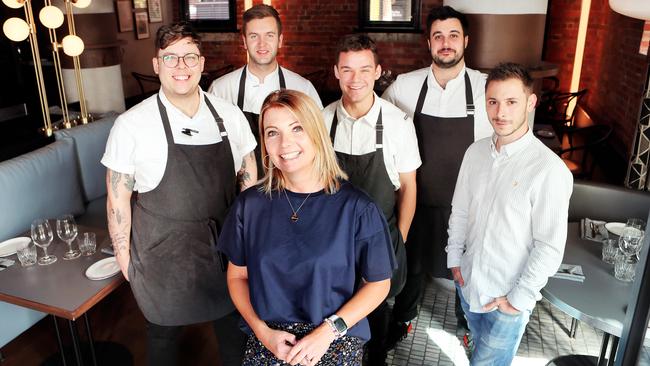
THE RESTAURATEUR
Nathalie Reymond, 44, is director of Melbourne eateries Frederic, Bistro Gitan and L’Hotel Gitan
Reymond operates the businesses with her brothers and with valuable advice from her father, renowned chef, Jacques Reymond. Nathalie is also mother to two young children.
Nathalie Reymond grew up in a French country town where her parents ran a busy hotel. When the family moved to Melbourne and they opened a restaurant in Richmond, Nathalie was a kitchen hand and waiter during school holidays.
“But my first love was winemaking and I thought I’d import and export wines,” says Reymond, who did a degree in international trade.
“But when an opportunity came up in Dad’s restaurant as an assistant sommelier, I took it. By then I’d spent some time working a nine-to-five, Monday-to-Friday job and missed the pressure of hospitality and the fact that every day is different.”
Progressing to head sommelier, Reymond was one of few women in her field and after stepping away from the restaurant for a while to raise her children, 11 years ago, she and her siblings decided to grow their own restaurant empire.
“I run the back engine and do the accounting and manage bookings and functions, while my brothers run the front. But I do occasional nights on the floor and I’ll wash dishes and peel potatoes,” she says.
“I’m very influenced by the work ethic of my parents. Mum has been an inspiration. She had four children and was involved in everything to do with the restaurant (Jacques Reymond in Windsor) without ever seeking recognition. Dad has always encouraged us children. We can all cook but none of us followed him into the kitchen but he’s happy to let us do our own thing.”
In the past decade, Reymond has witnessed more women taking leading roles in the industry. “When I was young, women chefs weren’t common but half of my team at L’Hotel Gitan are women. There are women managers, sommeliers and head chefs.
“I never came up against many challenges as a woman. Occasionally as a sommelier I’d get older male customers looking at me because I was a young woman serving their wine. But that was 20 years ago and I don’t see that attitude any more. To be successful in this industry you have to work hard and love what you do — whether you’re a man or a woman.”
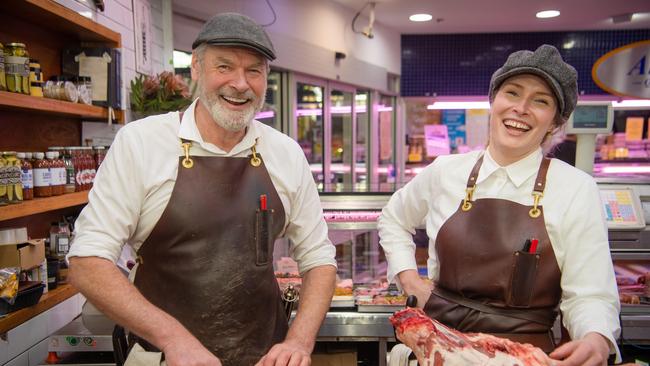
THE BUTCHER
Ashleigh McBean, 28, is a fifth-generation butcher who works with her father and grandfather at Gary’s Quality Meats in Prahran Market.
McBean completed her butchery apprenticeship last year and is keen to encourage other women to enter the meat industry.
When she was in kinder, her Mum asked her what she wanted to be when she grew up and the toddler didn’t hesitate.
“I said I wanted to work with Dad and be a butcher but by the time I got to high school I was more focused on playing basketball. I got a basketball scholarship to go to Carey Baptist Grammar in Year 10 and after that I was offered a scholarship by a university in Kentucky in the US, so I went there for a few years,” McBean says.
At the age of 23, McBean was back in Melbourne and she’d lost her passion for basketball. “I’d worked in Dad’s shop during high school — skewering meat to make kebabs and serving customers — and when I came back from the US I started working in the shop again and grew to love the art of butchery,” she says.
She learned how to make frankfurts, smoked bacon and hams and told her Dad she wanted to do a butchery apprenticeship.
“Dad didn’t bat an eyelid,” she says. “There are actually a lot of women in the meat industry, they just don’t all have a knife in their hand.”
In a typical week, McBean will receive cows, pigs and lambs and she’ll break them into the cuts that end up displayed behind glass. Wholesale orders have to be prepared for delivery to restaurants by 9am and she also spends part of her working day making burgers, sausages and marinades.
“I love what I do and I am lucky to work with Dad and my granddad. Every morning when I arrive, grandad has a coffee waiting for me. We all get on like a house on fire,” she says.
“I’m proud to be a butcher and I think that really hit home last year during lockdown.
“We were classed as essential workers and that was a nice feeling — to be classed as someone that people needed during a pandemic.”
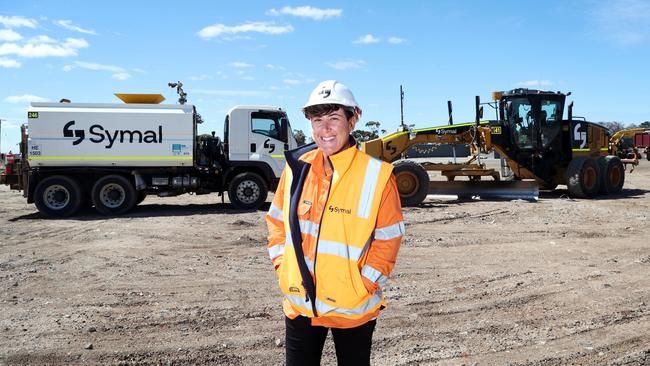
THE CONSTRUCTION TEAM LEADER
Barbara Cortese, 35, leads a crew of up to 40 people – mostly men – who are building a maximum-security prison at Lara
The former restaurant manager picked up a shovel 11 years ago and hasn’t looked back.
When completed, Chisholm Road Prison will house more than 1200 prisoners. Part of a $1.8 billion spend on the prisons and corrections system, construction began in February 2020 and should finish next year. Cortese leads a crew laying pavements at the prison.
“I organise materials and machinery, work out how many people we need on the ground and make sure the job is done on time. It’s my responsibility to check the ground conditions and to work out what to do to make sure the conditions are right,” Cortese says.
“I still jump on the tools, like the rollers and excavators. The boys won’t take direction from someone without that kind of experience.”
Cortese left high school after Year 11 and went into hospitality, becoming a restaurant manager. But she wasn’t happy and friends working in construction suggested she switch industries.
“One of my brothers is a sparky and the other is a painter and Mum always told us we’d never be out of work with a trade. Dad passed away when I was younger and Mum has been my biggest supporter,” Cortese says.
Her first labouring job was in Doreen working on a subdivision.
“I was on the shovel and broom and it was hard work. There were times when I wanted to bawl my eyes out but my body got used to it and my employer saw that I wanted to learn.
I learned how to put pipes in the ground, read plans and do concreting and asphalting.
I was determined to master whatever I could,” she says
“I was surrounded by guys and you only gain their respect when they see what you’re capable of. I’ve worked on jobs where I’ve eaten lunch on a nature strip and I’ve worked in the pouring rain. I’ve laid boiling hot asphalt on days when the temperature hit 40 degrees.”
She sees more women joining the industry, but says more could be done to present construction as an option to girls in schools. “Construction is an equal playing field in terms of pay and opportunities,” she says. “If you work hard, it’s a great industry to be in.”
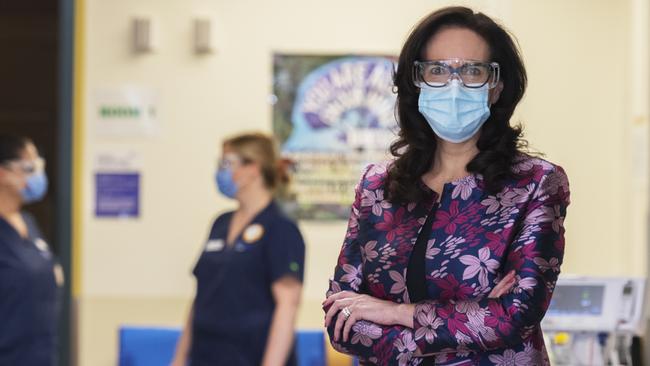
THE CEO
Angela Nolan, 51, is chief executive officer of St Vincent’s Hospital
Beginning her career as an accountant, Nolan held a number of leadership roles with ANZ before switching to health care.
Nolan liked the problem-solving part of accountancy but gradually realised she preferred the human element of being part of an organisation. So, she shifted her focus to HR, joined ANZ and ended up as global head of HR Consulting and HR Advisory.
In 2011, she joined St Vincent’s Hospital as HR director.
“I’ve pursued opportunities that gave me purpose and meaning. I haven’t always moved upwards — sometimes it’s been sideways — and my career is more of a lattice than a ladder,” Nolan says.
“When the idea of being CEO at St Vincent’s was suggested, I dismissed it outright. I’d always seen myself as a kingmaker behind the scenes helping other people to lead, but people saw something in me that I didn’t see in myself.
“In times of crisis, irrespective of gender, people simply need a leader they can be confident in and whom they know will make decisions and create an environment where people are safe and can do their best work.”
During the pandemic Nolan has relied on her professional experience, human instinct and the wisdom of her executive team to navigate sensitive situations.
“Early in wave two lockdown my executive team came to me with a request to facilitate a family visit. We had a palliative patient in the final stages of life and his spouse and children were COVID positive but wanted to say goodbye,” she says.
“We had to apply for an exemption from the chief health officer on compassionate grounds to allow the visit. No other hospital in Victoria had requested such an exemption. The patient had maybe 48 hours to live and we had to design a safe process and get approval quickly.
“Late one night the executive team and I talked through the risks and I couldn’t stop thinking about my own mother’s death and how important it had been for her to have her children around her as she passed. I knew in my heart that we had to be courageous. That patient’s family were with him before he passed away and my staff felt a sense of dignity, hope and triumph that the virus wouldn’t get the better of us.”



